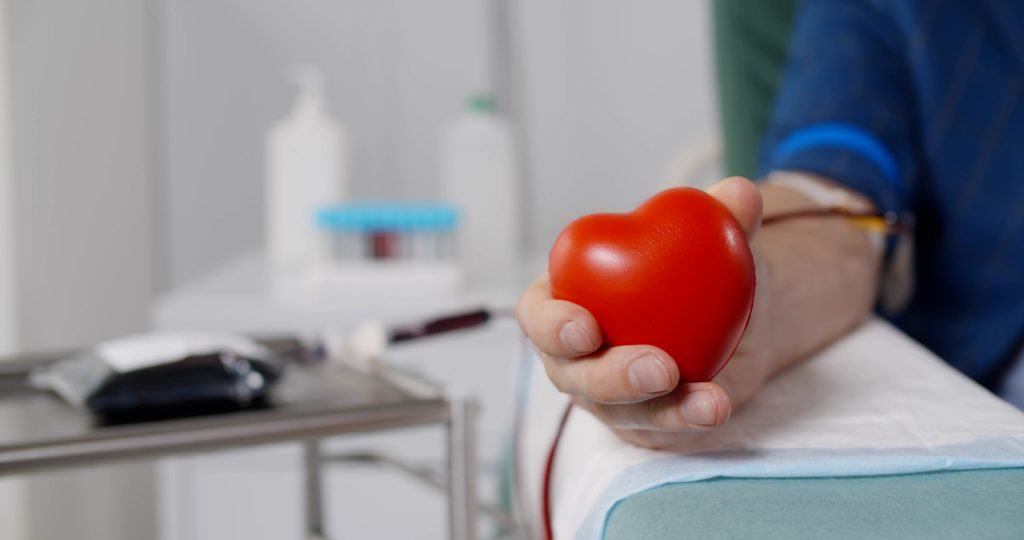
www.optimistdaily.com
New rules allow thousands more Australians to donate plasma, regardless of sexuality
BY THE OPTIMIST DAILY EDITORIAL TEAM
In a historic shift for both public health and LGBTQIA+ rights, Australia is lifting long-standing restrictions that effectively barred many gay and bisexual men from donating blood and plasma. Beginning in July, the country will become the first in the world to remove all sexual activity-based restrictions on plasma donation.
The change follows years of advocacy and research, and is expected to significantly expand Australia’s donor pool. According to Lifeblood, the country’s national blood donation service, an estimated 625,000 more people will now be eligible to donate.
“Australian lives will be saved by this overdue and important decision,” said Rodney Croome, a spokesperson for the Let Us Give campaign, which has long advocated for lifting the discriminatory restrictions.
From exclusion to eligibility
Under previous guidelines, any men or transgender women who had sex with men in the prior three months were barred from donating blood or plasma. The policy also restricted sex workers and women who had sex with bisexual men, citing concerns about HIV transmission risk.
Now, individuals in a monogamous relationship of six months or more regardless of gender or sexuality will be eligible to donate blood. More significantly, Australia will no longer restrict plasma donation based on sexual activity at all, marking a global first.
“Blood safety is and always will be our top priority,” said Dr. Joanne Pink, Lifeblood’s Chief Medical Officer. “But we know the current donation rules have been very difficult for many people in the LGBTQIA+ community… and we know that they’ve contributed to the stigma faced by [them].”
Instead of blanket bans, the new screening process will ask all potential donors if they’ve had anal sex with new or multiple partners. If they have, they will need to wait three months before donating blood. However, they can still donate plasma during that time.
The updated approach also allows individuals taking the HIV prevention medication PrEP to donate plasma, though they remain restricted from donating blood.
A science-backed change
The shift in policy has been approved by Australia’s health products regulator, the Therapeutic Goods Administration (TGA), and is based on extensive scientific research. Lifeblood collaborated with the Kirby Institute at the University of New South Wales to ensure that the new criteria maintain high safety standards.
Research confirmed that the changes would not compromise the safety of the blood and plasma supply. Plasma donations undergo pathogen inactivation, a process that removes viruses and bacteria, greatly reducing the risk of transmitting infections.
Dr. Pink called the development “a significant milestone” for both donors and recipients. As global demand for plasma hits record highs and continues to rise in Australia, the expanded eligibility could offer a timely and much-needed boost to national supply.
Looking ahead: optimism with caution
The new rules for plasma donation will come into effect on 14 July 2025. The updated guidelines for blood donation will be implemented in 2026, allowing time for education and logistical preparation.
While many advocates have praised the changes, some believe there is still progress to be made. Sharon Dane, a researcher with Let Us Give, welcomed the move but noted it falls short of best global practices.
“It appears Lifeblood and the TGA are taking a more conservative approach to whole blood donation, relative to other countries like the UK, Canada and the US,” she said. In those countries, only three months of a monogamous relationship is required for those engaging in anal sex, versus Australia’s proposed six months.
Still, the mood among public health experts and LGBTQIA+ advocates is largely optimistic. The reform signals a critical shift away from stigma-based policy and toward evidence-based, inclusive healthcare.
With the doors opening to hundreds of thousands of new donors, Australia is positioning itself not just as a leader in health equity, but also as a model for scientifically grounded policy reform.The post New rules allow thousands more Australians to donate plasma, regardless of sexuality first appeared on The Optimist Daily: Making Solutions the News.










